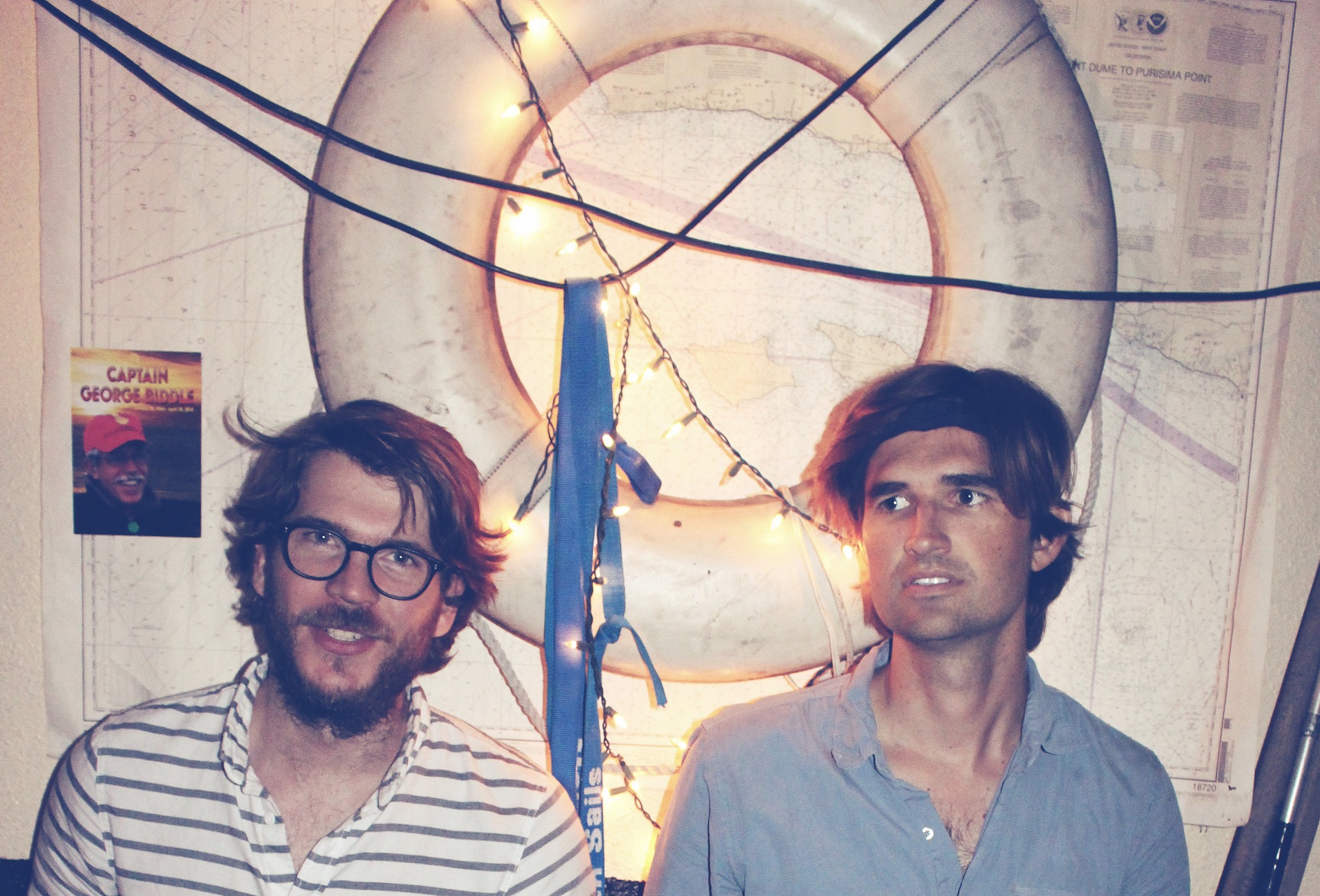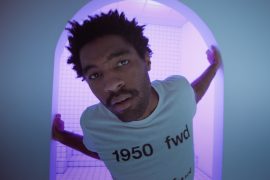New York singer/songwriter and Atwood artist-to-watch Brian Dunne opens up about his intimate and brutally raw new album, ‘Loser on the Ropes,’ which he describes as a “celebration of failure,” and why he’s ultimately an optimist at heart – just a very bad one.
for fans of Bruce Springsteen, The Killers, Tom Petty
Stream: “It’s a Miracle” – Brian Dunne
If I pick up a book and I’m just standing in the bookstore, I’m gonna flip to the rock-bottom moment. That’s what I want to hear, because that’s what I feel is the most real right now.
He might be a self-proclaimed “loser,” but Brian Dunne’s feeling like a winner these days.
Sure, there’s always room for improvement, but life’s been pretty good to the New York City singer/songwriter recently: The last year alone saw him touring throughout Europe, releasing an album with his “supergroup side project” Fantastic Cat, and signing a record deal with legendary indie label Kill Rock Stars.
And things just gotten even better: This month saw the long-awaited release of Dunne’s highly-anticipated fourth solo album Loser on the Ropes, which has already received early praise from outlets like Paste and Glide Magazine, and was even featured on CBS News’ Saturday Sessions.
But things weren’t always going the way Dunne had planned, and it’s out of those moments that Loser on the Ropes was born.
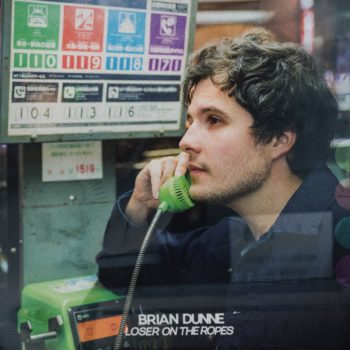
So if you’re feeling shaky
Might I suggest you sitting out
I’ve got some bad news, baby
And I’m feeling kinda down and down and down
And down we go
Like a loser on the ropes
‘Cause this world will drive you crazy
But where else can you go?
– “Loser on the Ropes,” Brian Dunne
“It’s my most revealing record to date,” he says in conversation with Atwood Magazine. For Dunne, these songs are a celebration of failure; a brutally honest pulling back of the “everything’s fine” veneer, shining a light on the sometimes ugly, sometimes bitter truths of our reality. Real life has a lot of lows, and we don’t talk about them nearly enough.
“I love when somebody is open and honest about their failures or their shortcomings or their rock-bottom moments or their insecurities,” Dunne explains. “And so I am, with this album, attempting to sidle up next to you at the bar and tell you where I feel like I’ve fallen short and I hope that you, in turn, the listener will come along and tell me some of yours.”
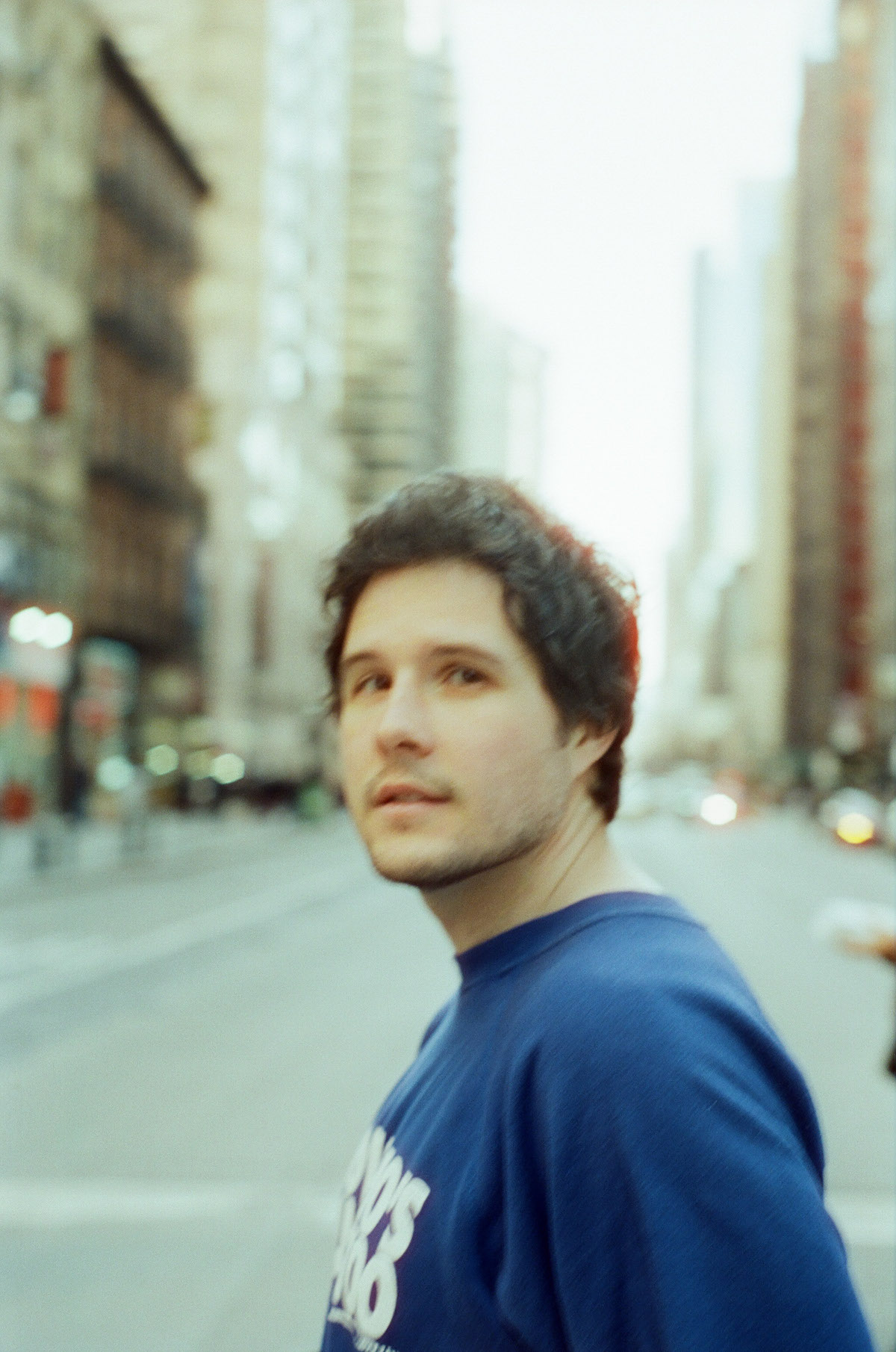
Loser on the Ropes is also a record of resilience; Dunne considers it his best album to date. “If I’m going down, I’m going down swinging,” he says, expanding on the record’s context and perspective. “My career had sort of stalled out during the pandemic, just based on the ways of the world. In this day and age, when you put out a record that gets sideswiped by a global pandemic, there’s a lot more to it than just like, ‘Yeah, that album didn’t get attention,’ and I think it’s hard for people to maybe even understand that, but this is a fragile ecosystem. The life of an independent singer/songwriter… I’m signed now, but it threatened to destroy my entire life financially by not being able to be sold.”
“I think we all felt like, ‘Okay, this might be all there is,’ he adds. “At the same time, I also felt like, if the ship is sinking globally, I have a few things I gotta get off my chest. I’d like my music to not mince words and speak to heavier subject matters, and that’s what I stopped to do.”
“I wanna speak my truth… Your back is against the wall, but that’s when you’re at your best. Especially during the pandemic, everyone I knew was feeling like they had failed in some way, which was so ironic to me because the world was failing them on such a catastrophic and global level, and yet most of the people I knew, if I sat down and had a drink with them, were saying things like, ‘Oh God, I gotta get my life together. I got to get in shape. I got to work harder. I got to try harder. I’m not doing enough.’ I wanted this record to be a pacifier for my friends, because I felt like I wanted at once to send a message to say like, ‘Don’t be so hard on yourself,’ and to send up a signal flare to anyone who felt that way, who felt like a loser on the ropes, like their back was to the wall and they were one hit away from going down. But I also was trying to signal that we are all unified in our feelings of failure and our shortcomings.”
Atwood Magazine had the honor of premiering Dunne’s third solo album Selling Things in 2020, which we declared “a new timeless classic” (it was also listed on our 2020 Albums of the Year feature). Loser on the Ropes builds upon that record both musically and thematically, finding Dunne’s writing sharper than ever and his music bolder than ever as he spills himself into eleven sonically and emotionally charged songs, uncovering quite a few raw facts of life in the process.
“My first goal with this record was to take the subject matters on Selling Things, which was sort of these little vignettes of tripping through the capitalist arm of the world and being slapped by it, and take it to an even more dramatic level, which is that the world is setting you up for failure. To survive right now is to succeed, and I feel that that has never been more true – and people don’t feel that way because we’re living on the internet, where everybody is made to feel bad about themselves.”
Dunne has always been the kind of artist who wears his heart unapologetically on his sleeve, and Loser On The Ropes is an embodiment of that character at work: A bold, sincere, and ultimately optimistic album, the record as a whole sees him dwelling around life’s darker edges, yet finding his way out into the light. Songs like the warm and wondrous “Sometime After This,” the liberating and lively anthem “Bad Luck,” “Rockaway,” “It’s a Miracle,” the achingly heartfelt “Optimist,” and the album’s hopeful closer “Something to Live For” are all exhilarating examples of this sentiment at work.
In a daydream you had made arrangements for
Pretty flowers laid after the massacre
You awoke in a startling start of death
The holy ghost, the townies, tangled in a total mess
As if Sam Shepard rang the early morning bells
With an email from the grave –
“I hope this message finds you well”
If there was ever any lingering doubt
Kid, just look at where we are right now
But on the precipice
Sometime after this
We’ll watch the changing tides
deride this false self-righteousness
Where the truth is laid
Just up the stairs
I will meet you there
An Atwood Magazine artist to watch and Editor’s Pick, Brian Dunne is one of the best contemporary singer/songwriters of his generation, and he’s proved it all over again.
Loser on the Ropes is easily one of the year’s musical highlights, and with his album finally out and available, Dunne is now ready to take the world by storm: Catch him live on tour throughout North America this spring before he heads to Europe this summer, and dive deeper into Loser on the Ropes in our intimate interview below as Brian Dunne opens up about the inspiration behind his new album, his love for New York City, and why he’s an optimist at heart – just a very bad one.
“I think that there’s no point in trying to be moderate or trying to play to the center,” Dunne says. “I don’t wanna be big and broad. I wanna be small and direct.”
Loser on the Ropes is out now.
— —
:: stream/purchase Loser on the Ropes here ::
Stream: ‘Loser on the Ropes’ – Brian Dunne
A CONVERSATION WITH BRIAN DUNNE
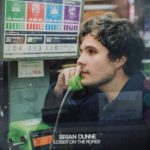
Atwood Magazine: Brian, it's been a few years since we last spoke. This is such a loaded question considering everything the world's been through, but how would you compare the version of you who released Selling Things to the person I'm speaking with today?
Brian Dunne: Well, I’m older. That’s an interesting question. I do feel like this album is tangentially related to Selling Things in that this album to me feels almost like a heightened version of that record, or the record that never got to be, because of the pandemic in a way. There are some similar themes, but at the same time, as I sit here, I turn 34 in a month and I wrote most of Selling Things in my late 20s, it came out when I was 30. Yeah, a lot has changed. I’m thinking a lot more about my purpose as a musician and what it is that we are actually trying to do here as opposed to just trying to win fans, win friends and influence people. There’s a lot of songs on this record that are more about purpose, like a song like “Rockaway” where I’m sort of trying to find a broader identity.
For instance, that song was sort of born in the midst of the chaos of the last couple of years. I had this sort of like existential breakdown of like, “Well, how can I help?” And it’s a very sort of humbling moment when the world goes, “Well, we don’t need you right now. You’re the last… We’ll call you, don’t call us.” As a musician, that’s my life’s work, I’ve been doing this since I was five years old and it sent me sort of reeling and sent me sort of on a path to try to figure out how I could actually be of help with my music or be of service with my music as opposed to just trying to be another popular indie rock singer/songwriter coming out of New York City. So I would say that’s the primary difference is thinking about purpose and how I can actually serve people.
Is there more to a song than just entertainment?
Brian Dunne: Absolutely. I mean, songs saved my life. And of course that’s quite a bit of pressure to put on a song ’cause also it’s just a song, but both things have to be true at once. Songs are the most important thing in the world. They’re life and death to me. They are the lifeline that saved me as a young kid and I think will save other people, but also like, also just got to feel good. So, it’s sort of both things all at once.
Sounds like Loser on the Ropes has quite a bit of pressure on it just personally – there's more of you in it.
Brian Dunne: I’m sure you hear it all the time. It’s my most revealing record to date. But yeah, there’s definitely a lot on this. The sort of mission statement of the album is if I’m going down, I’m going down swinging, right? That’s sort of what I mean by ‘Loser on the Ropes’. And I meant that sort of, yes, in a way that my career had sort of stalled out during the pandemic, just based on the ways of the world. I think we all felt like, “Okay, this might be all there is.” And at the same time, I also felt like, “Okay, if the ship is sinking globally, I have a few things I gotta get off my chest.” And I’d like my music to not mince words and speak to heavier subject matters. And that’s what I stopped to do.
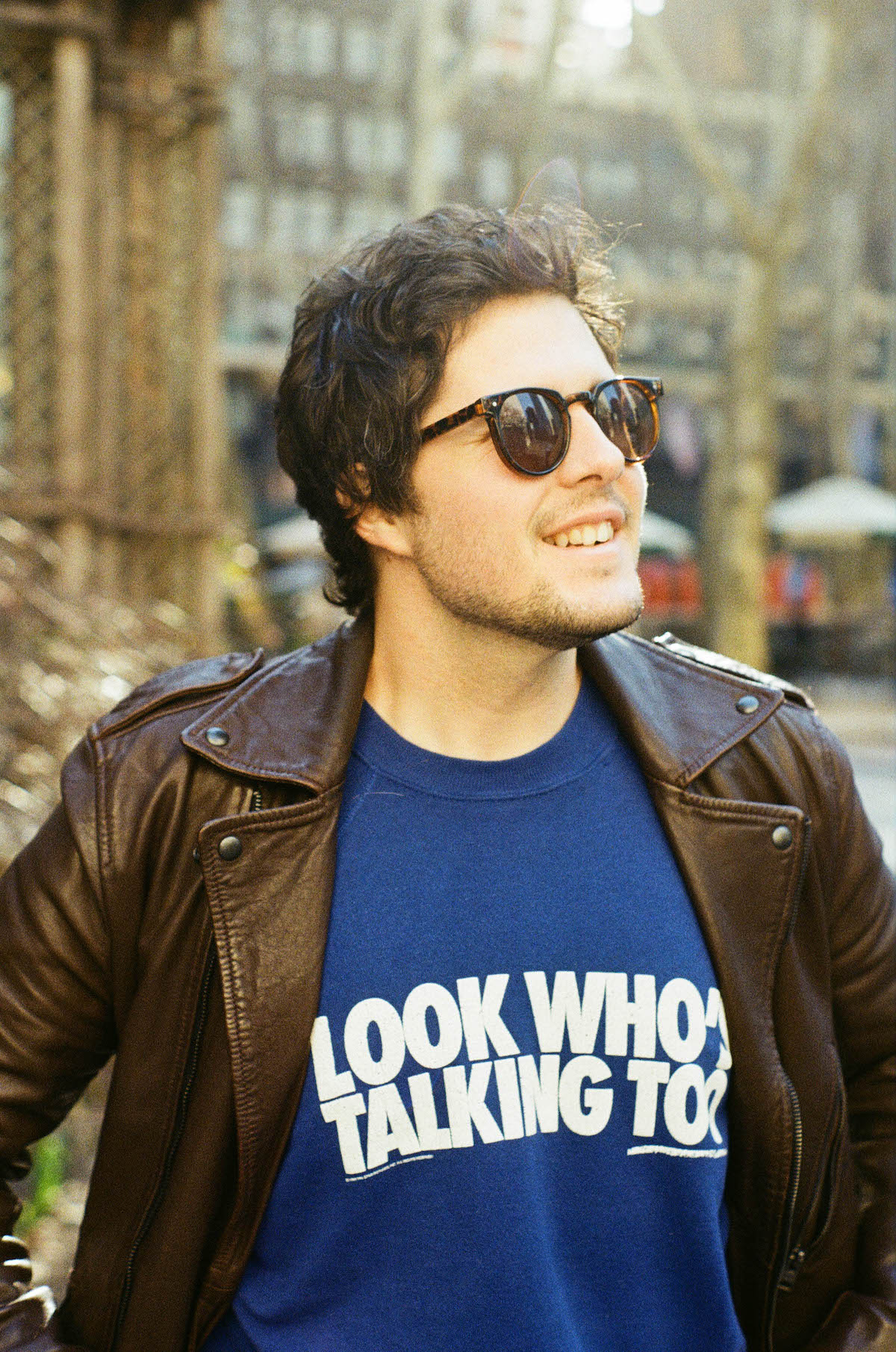
Lasering in on the album title, what does “Loser on the Ropes” mean to you?
Brian Dunne: Sure. Yeah. So, it’s kind of like I said, that thing of, “If I’m going down, I’m going to swinging.” I wanna speak my truth – and it’s also sort of about the idea of learning to love that sort of feeling – your back is against the wall, but that’s when you’re at your best. I wanted this record to sort of be a celebration of failure. I felt like, especially during the pandemic, everyone I knew was feeling like they had failed in some way, which was so ironic to me because the world was failing them on such a catastrophic and global level, and yet most of the people I knew, if I sat down and had a drink with them, were saying things like, “Oh God, I gotta get my life together. I got to get in shape. I got to work harder. I got to try harder. I’m not doing enough.”
I wanted this record to be a pacifier for my friends, because I felt like I wanted at once to send a message to say like, “Don’t be so hard on yourself,” and to send up a signal flare to anyone who felt that way, who felt like a loser on the ropes, like their back was to the wall and they were one hit away from going down. But I also was trying to signal that we are all unified in our feelings of failure and our shortcomings.
You described Selling Things as a commodification of everything around us. Do you feel like Loser on the Ropes’ songs share a similar thematic arc – an overarching narrative?
Brian Dunne: Yeah, but it’s a big step forward in terms of subject matter. I didn’t want this to be a pandemic record at all or reference the pandemic in any specific way, but rather just, “Wow, what complicated times.” And to me, if you are a songwriter and you’re living through complicated times, you gotta step up to the plate. And I feel like my first goal with this record was to take the subject matters on Selling Things, which was sort of these little vignettes of tripping through the capitalist arm of the world and being slapped by it, and take it to an even more dramatic level, which is that the world is setting you up for failure. To survive right now is to succeed, and I feel that that has never been more true and people don’t feel that way because we’re living on the internet, where everybody is made to feel bad about themselves.
Right. There was a moment where we were openly talking about it being okay to not feel okay. Now I feel like most people are trying to sweep it all under the rug.
Brian Dunne: Right, and of course, yeah, the second we get back into the world, we only want to celebrate our wins because we want to look at our own highlight reel – and I get that, but I wanted my album to be the opposite. I wanted it to be a celebration of shortcomings in ourselves and I thought if I put mine out there, I floated mine out there, then maybe people would feel connected to me. Because the other thing is art is about making people care about your obsessions, and it was the same thing with Selling Things, I was obsessed at that particular moment with how we got here and how everything was driven by money and bullshit. And even as a person who started their career not caring at all about money to come to the stark realization that I wasn’t going to be able to do this without finance.
And also that here I was making a record, but it was going to go up for sale at $25.99 and we’re trying to move units and it’s all very… That was what I was obsessed about at that particular moment. What I’m obsessed about right now is if I pick up a book and I’m just standing in the bookstore, I’m gonna flip to the rock-bottom moment, that’s what I want to hear, because that’s what I feel is the most real right now. I think that even the people that are doing it would tell you that they’re full of shit with the celebration of their own highlight reel. I wanna know, where did you fail? What happened? And how did you come back from it? That is an interesting story to me. And I think that it’s just I often try to write songs based on, not everything that happens to you is interesting. And I think that’s where a lot of writers fall short…
For instance, I think that health, your health, that’s the most important thing, yet for whatever reason, it’s just not that interesting. Like when somebody sits next to you at a bar and starts talking about their sciatica, you’re just like, “All right, whatever.” But if somebody sits next to you at a bar and says, “I just got dumped.” It’s interesting, right? I think that’s why there’s so many songs about getting dumped. I love when somebody is open and honest about their failures or their shortcomings or their rock-bottom moments or their insecurities. And so I am, with this album, attempting to sidle up next to you at the bar and tell you where I feel like I’ve fallen short and I hope that you, in turn, the listener will come along and tell me some of yours.
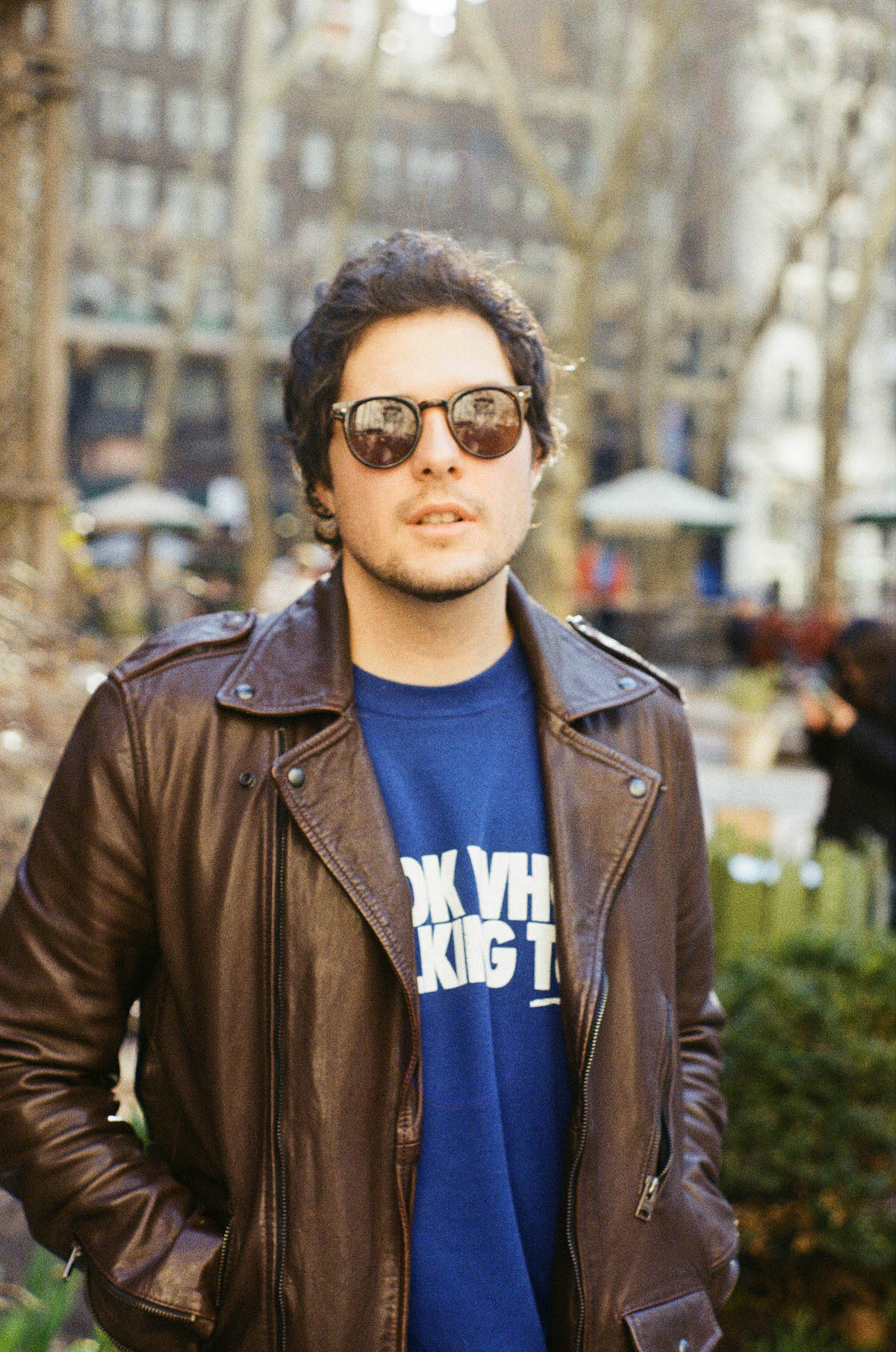
I’d like to step back for a moment and talk about your highlight reel. Over the past few years, you toured through Europe and you co-founded Fantastic Cat, a band that's been dubbed a New York City “supergroup.” What has your highlight reel looked like?
Brian Dunne: Sometimes I feel like when you pause and you have a second to think, you can actually make a plan. I was going, going, going so, so hard for, I wanna say from 2015-2020, I barely could stop to breathe and because of that, I had a minute to think about what I wanted to do, what I thought would be interesting and what I wanted to make. So I wrote this record and we released Selling Things and I put together Fantastic Cat with my three friends. And it’s funny sometimes when you just relax a little bit and have fun, people really take to it. It’s strange how that is, ’cause I was squeezing my career so tight that I felt like people could feel the desperation falling off of me in my mid 20s. And that puts people off a little bit.
People admire from afar the tenacity, but when you’re like, “Please come to my show, please. I’ll die.” People are a little put off by that. So Fantastic Cat was very interesting because we were all just having fun and people really took to it. So we’re at work on our second record now and I think it’s gonna be a real… We’re gonna squeeze all the joy out of it. [laughs]

I was squeezing my career so tight that I felt like people could feel the desperation falling off of me in my mid 20s.
What's the experience been like with that band, compared to your solo project?
Brian Dunne: I love it, I think it’s such a wonderful thing to be and to share resources, because again, like I was sort of saying, sort of tangentially connected to the record, I think a lot of us are very closed off about what we know, what we don’t know, our resources, how we like to work creatively, people don’t wanna share their failures or their insecurities. And we have, in the band, we have this sort of open environment where we share everything. We get together and we pool our resources and we pool our songs and we work together as a unit.
The way that a real band is, it started as a supergroup side project, but I would say it is just a band. We function like a band and because we have our solo careers as well, we are able to be completely egoless in the process. We bring a song and we throw it around, maybe you sing it, maybe I sing it, maybe we split it, maybe I play the drums, maybe I play bass, maybe you play guitar, that kind of thing. It’s a completely egoless and open environment where everyone is just collaborating. So it’s an interesting thing. Like we’re going into the studio next Monday just for a day to bang out some new songs and I’m very excited about it. Usually the studio can be a very, not stressful, but high-stakes environment because there’s a lot on the line. I loved making my record Loser on the Ropes in Athens, Georgia, with Drew. But the pressure was on. I don’t feel like I ate for a month, I was just so energized every time anybody said they were ready to call it a day, I was like, “Okay maybe let’s do one or two more hours.” That kind of thing.
There's something to be said when it's all riding on you, when your name is attached to it, when the success of one record may mean the opportunity to make another record, right?
Brian Dunne: Absolutely. And I certainly feel that with this record, with Loser on the Ropes, and that’s okay too, because I do thrive under pressure. But Fantastic Cat has provided a really unique place for us to try new things, to be a little sillier and to express ourselves in maybe a slightly looser way than we would be willing to in our own personal career. So I love it. I feel like if I can do this for the rest of my life, release a record of my own, release a Fantastic Cat record, I’m blissfully happy.
Would you say that band is probably the center of the highlight reel?
Brian Dunne: It’s one of them. The other thing was I had a song kind of pop off on the charts in the Netherlands, so I went over and that drew a brand new audience to me so that was really exciting. It’s a song called “New Tattoo” that came out in 2018, and it just sort of picked up steam over there. And I played an arena back in October, and we put out a record over there. So it’s been the best three years of my career. Well, maybe I should say that off the record ’cause I know people went through a really tough time and I did, too, personally but as in terms of a career, it was such a left turn for me that I think it kinda shook things up.
Congrats, that’s really cool!
Brian Dunne: Thanks man.
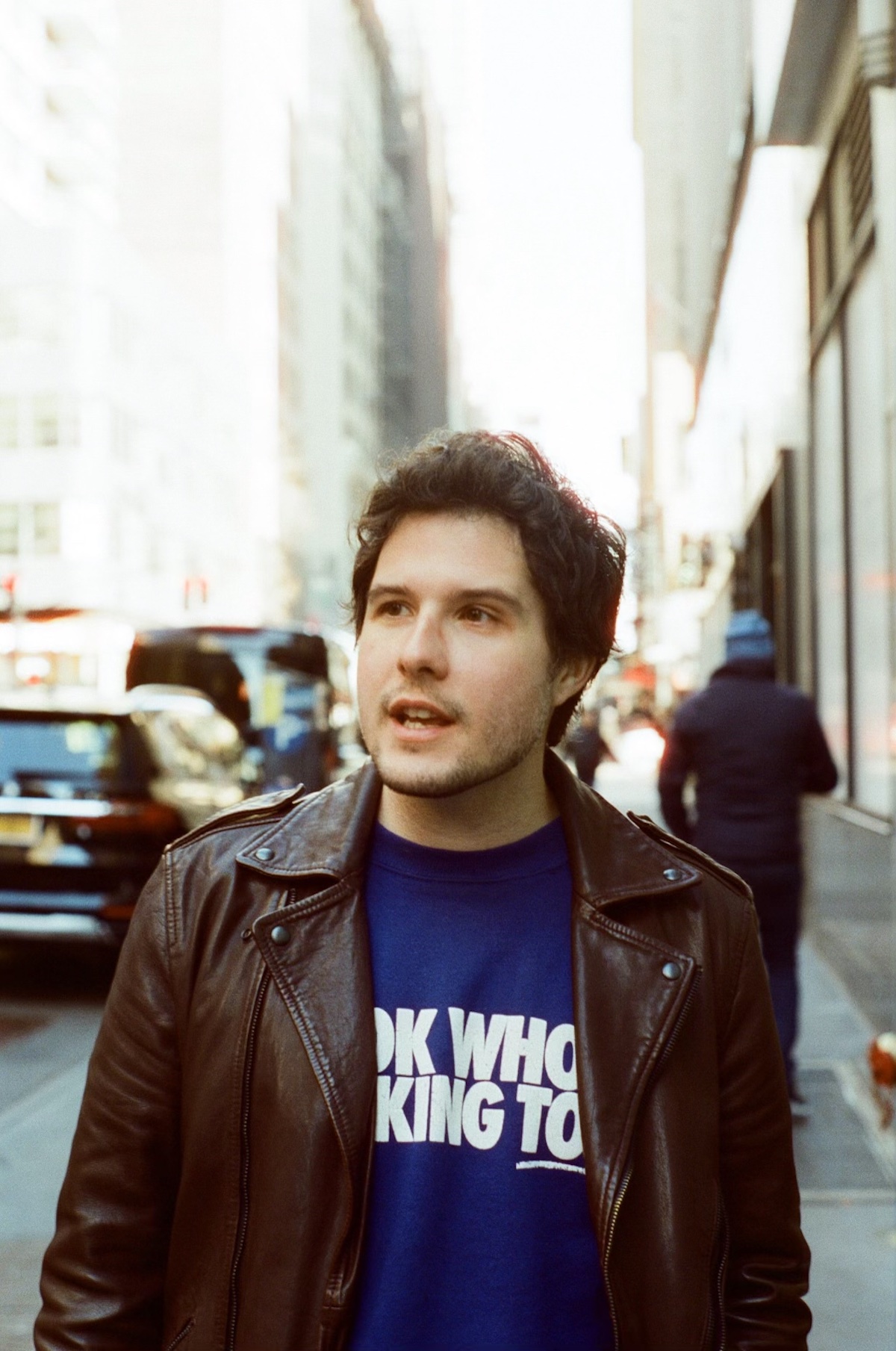
Now that we talked about the highlights, let's talk about the shortcomings. To quote you, “Where did you fail? What happened, and how did you come back from it?”
Brian Dunne: Well, sometimes it can sound a little melodramatic because this music life is… even when it’s at its worst, it’s still the best job in the world. But somewhere after Selling Things came out, it was abundantly clear that we were not gonna be going back to touring anytime soon. And I had self-released Selling Things. I put all my own money into it, and it was clear that it was not going to make the dent I had hoped because of the circumstances of it. I still care a lot about that record, and I think it’s a really good record, but it did kind of get overlooked just by virtue of how much was going on in the world. And it was my pandemic record and that really hurt. I put everything on the line for that record. I spent more than all my money and called in a million favors, and we were all ready to go.
We got our first Rolling Stone write-up, and then it kind of just fell off a cliff because people were busy and people couldn’t create brain space for an album that came out on April 10th, 2020. It also coincided with me turning 30 and in a way accepting that, “Okay, this might be what I’m looking at, which is down the barrel of it always being difficult. I’m going to make records independently. I’m going to have to accept that I’m going to go bankrupt every couple of years.” And I’m okay with that, and I sort of made peace with that. I’ve got plenty of personal shortcomings, I don’t know if you wanna get into those, but I’m working on those, too. I think your early 30s sometimes is a time where, a lot of things get tucked under the sheen of your 20s, and you sort of earmark them and go, “I’ll get to that someday.” I think now I’m trying to get to it.
I’m relatively aware that turning 34, I’m still a relatively young man, and I’m not trying to have some sort of like, “And now that I’m 34, my life is over and there’s only yesterdays” or whatever. I’m ready to go. But I think that a lot of us, we come out swinging in our early 20s, and there’s sort of an understanding that, “I’ll come up for air when I’m 30 and I’ll see where I got.” And when I put out Selling Things and I was 30 and I looked around, things weren’t looking so hot, and part of that was circumstantial, but part of that was also just the incredibly difficult life that you make for yourself when trying to write and release music. And I sort of had to make peace with that. There’s a moment where you do have to go, “Okay, I’m going to keep trying. I’m going to keep trying despite all the evidence that I am not Bob Dylan.” I’m proud of that, but that takes a second; it takes a second to reconcile that.
First of all, I have a lot of empathy for your situation regarding that album.
Brian Dunne: I’m super grateful! I don’t consider that album a failure by any stretch. I’m very proud of it. I think that in this day and age, when you put out a record that gets sideswiped by a global pandemic, there’s a lot more to it than just like, “Yeah, that album didn’t get attention,” and I think it’s hard for people to maybe even understand that, but this is a fragile ecosystem. The life of an independent singer/songwriter or an independent at that moment… I’m signed now, but it threatened to destroy my entire life financially by not being able to be sold.
Has signing to Kill Rock Stars been a big change for you? How does that fit into the highlight reel?
Brian Dunne: It was huge for me! I’ve been making music since I was a little kid, and no matter how different the music industry is than it used to be, there’s nothing like getting a record deal. And I sought out Kill Rock Stars because I wanted specifically to be on Kill Rock Stars, and I knew I wasn’t quite what they were used to signing, but I thought that they might see something in me. And luckily they did. Because Slim is the guy who signed Elliott Smith, and he signed Slater Kenny, and he signed The Decemberists, and I wanted to sit at that lunch table. So I sought them out, and I knew that there was a possibility they might just look me up and down and go, “I don’t know why you’re seeking out a punk label.” Or whatever they identified as at the moment, but Slim took a shine to me and working with them on this record has been an incredible experience. They’re all artists, they’re all artist-minded people. They care about the quality of music, and I think they’re great.
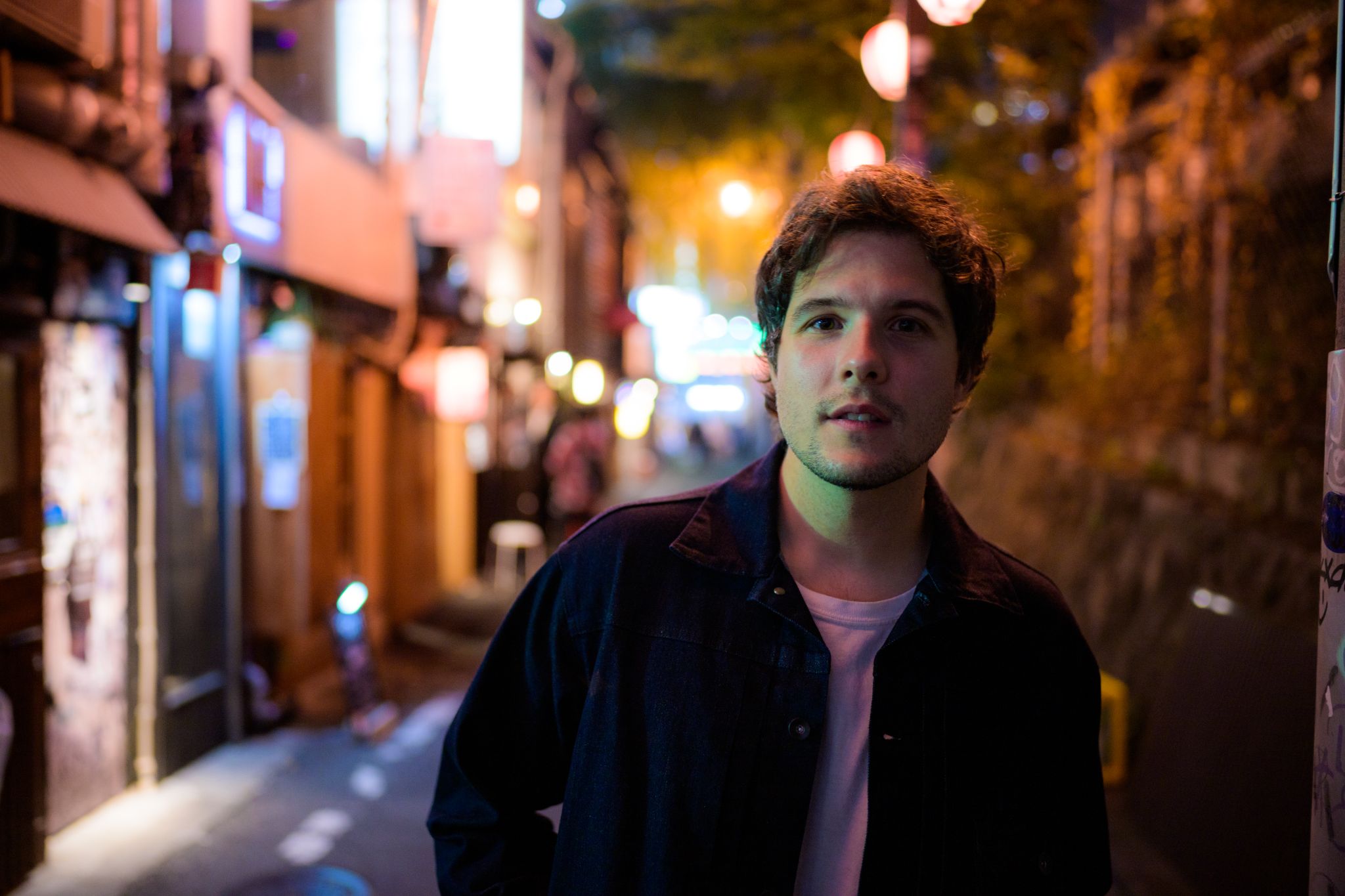
Congratulations, that's obviously huge! I'm sure I don't have to ask you to know that it changes the dial.
Brian Dunne: Absolutely. After the difficult years and the struggle of trying to get Selling Things out into the world from my mailbox, it felt like the fruit of my effort, the fruits of my labor had paid off, and… specifically that one opportunity to be able to then take the next record and bring it to a wider audience! I don’t know how it’s gonna go, but so far things are looking pretty good.
For the purposes of our conversation, I thought that Selling Things was your best album at the time, and I agree with you that Loser on the Ropes is even better – and that's great! You're getting better over time, that's what everybody wants.
Brian Dunne: Yeah, and again, it’s just there’s so much work that goes into an album. It’s a huge undertaking. I know some artists, myself included, that sometimes I’ll tell myself, “This is it, this is my last one.” Just ’cause I have to get through, it’s kind of like running a race, you just have to tell yourself each lap is the last lap to get yourself through, even though I’ll make records until I die. But I mind those songs so specifically and it was… And then when they come out you don’t burn ’em because a song lives forever, but at the moment it feels like, “Okay, there it all is. We put it all on one piece of vinyl.” And it did get good press from you, and Rolling Stone wrote about it, and it was really nice, but the world was in such utter chaos in that particular moment, there was no way to carry on.
Like right now we’re going to release the record, I just played CBS Saturday Morning. Spin Magazine is doing a big profile on me. That’ll all come out. And then I will take that record in boxes and I will go to every town in the US, and then I will go overseas and I will do that. Then I come back and we go on the Jesse Malin tour with Fantastic Cat, and then I do a West Coast run, and I’ll be able to keep this record alive for two years just by virtue of traveling around.
There's the hustle, that’s a ton of work.
Brian Dunne: Sure. I love it though. It gave me new appreciation for how important it is, because despite my fans coming in in waves to buy the last record online, and I loved that for a brief moment, in April and May after the record came out, it was really beautiful how many people got behind the record. But after a while, everyone that’s ever heard of you has purchased a copy and you need to go out and bring it to some new people. And I love it. It’s the greatest feeling in the world. You can feel it when you’re looking at a person who doesn’t know you from anywhere and you can connect with them, and that’s a wild thing. I think that music is a mystery and so many of us that do it for a living just seek to understand it.
Your last album felt very anecdotal to New York City, and Loser on the Ropes continues this trend. Beyond “Rockaway” and “Stand Clear of the Closing Doors,” there's all these little references that capture the familiarity of life in NYC. What is it that brings you to put so much of your home and surroundings into your music, and into your stories?
Brian Dunne: I try not to be too New York elitist, but for me, I just find it endlessly interesting to live here… You don’t need to do anything. You can just walk outside and start walking, and eventually it’ll get interesting.
I love it here. I’m a sucker. I’m a romantic about all of it. My friends always say that I’m too horny for New York. I moved here to be inspired by it and it didn’t disappoint, and I’ve been here 12 years now and I still wake up every day thrilled that I’m here. I also think New York is just endlessly inspiring, and there’s no shortage of idiosyncratic little moments to populate your art with. I think it’s just the coolest place, and I think that people will forever be interested in New York and what’s happening in New York, especially after something very strange happening. As “strange” happens, people do look to New York to see how it’s going to respond. But for me, I also think you write what you know, and I know New York – it’s the backdrop of my life.
And so sometimes I’m trying to specifically set a song in New York, like “Rockaway.” Other times like “Stand Clear of the Closing Doors,” it just dawned on me, it was funny, I wrote that song, I hadn’t been on the subway in a minute ’cause of everything that was happening. And I was just thinking about this sort of… The song is sort of an indictment of a type of person that is very much in our generation, but also as sort of a personal indictment of my own self in this idea that maybe I hadn’t… Maybe I had minced words before, maybe I had been a little soft, maybe I had not spoken out as much as I could have. And I was thinking about that it’s kind of like, “You gotta get in or get out, but get out of the way.” And I walked on the train and the doors closed and they said, “Stand clear of the closing doors, please.” And it just dawned me that that’s exactly what that means. Get in, get out, but get out of the way. And it felt like the right metaphor to use for this sort of song that I was trying to write, which was a call to action.
I was really moved by that song.
Brian Dunne: And of course, it’s a classic New York metaphor. Sometimes you fall upon songs because you’re like, “Well, somebody has to have used that before.” I felt that when I wrote the song “Fiona” for Fantastic Cat, I had the refrain, “I’m gonna miss you until I’m with you again.” And I just thought, “Well, somebody has to have used that as a refrain. That’s so classic.” And I asked everyone, I just went around to everyone and I was like, “Is this a thing? Is this a thing that you’ve heard before?” And no one had, and I Googled it a million times, so eventually I just wrote the song. Someday somebody’s gonna come out of the woodwork and be like, “You know that’s an REO Speedwagon song.”
And it’s the same thing with “Stand Clear of the Closing Doors. “I’m sure there have been songs called “Stand Clear of the Closing Doors,” but to my knowledge, no one has ever used it as a sort of sociopolitical metaphor to mean either help out or don’t, but stop standing in the way of progress.
You released “Sometime After This” late last year as the album’s first teaser. Why this song? What is special about it, for you?
Brian Dunne: I definitely wanted that specifically to be the first single. I felt like sonically it was different than what I had done before, but also thematically, it seemed to encompass everything I was trying to say with this record. And thinking about, ’cause the song has such a broad scope, it actually starts with a really broad idea and becomes smaller. And I felt like it had this sort of New York after the war feel that I was looking for, to just sort of center myself and center the listener in where I was going to be coming from. ‘Cause that’s sort of what a record is: It’s a recording of where an artist is as this person, at a certain point in their lives, and to me, “Sometime After This” is sort of the pinnacle of what that means.
The idea that here we are in this chaotic moment, coming out of this chaotic moment sometime after this, and learning to live again and trying not to lose the lessons that we said we wouldn’t, that we swore, “After this, I’m going to be a better person. After this, I’m going to care more about other people. I’m going to be grateful for this single cup of coffee. I’m going to be grateful for the music and the interactions and the green room wall. And I’m going to learn how to move past the sort of anger I feel towards people on the other side of the political aisle.” And all these things that we promised ourselves in the quiet of the pandemic as we move back into life. And we slowly sort of, they fall away we try to hang on to them. And that’s what the song is about to me.
I didn’t wanna say anything specific about the pandemic, but that was where I was writing from in that place in my life and what I was thinking about – that theme is ever-present when we promise ourselves in a moment of difficulty in our lives that, “Someday soon, I’m going to be a much better person than I am right now.” That’s what we live for, the hope of a better day, and so it felt like an ever-present idea that wasn’t just tethered to the pandemic.
There's always going to be a morning after, the second calm after the storm. That being said, the album itself actually opens with the title track, “Loser on the Ropes,” finding you in the fight. It starts in a different kind of space.
Brian Dunne: I’ve never done that before, but I knew the second I wrote the song that it would be track one, side one and that it would be the name of the album. The first half of the song is just sort of a centering of, “Okay, what’s happening?” We’ve got chaos on one side, we got chaos on the other side, and right behind me, we’ve got your friends, we got personal stuff and your friends from back in college, they just drive me insane. The first verse of that song is this idiosyncratic way of saying like, “There’s a riot, there’s a fire. Also your friends are a huge pain in the ass.” Like, “We’re gonna deal with the huge, we’re gonna deal with the very minute, we’re gonna deal with the almost invisible issues.” I’m gonna go high, medium, low. The whole song felt like a mission statement for the rest of the record, which is like, ” I’m not going to mince words. I’m not going to be shy.”
That’s what I’m sort of saying in the last verse with, “If some day I’ve had enough to say, then I’ll just grab my things and walk away. But ‘til then I’ll stand accused, ’cause I’m not scared of you.” It felt almost like a chest puffing song, like I was gassing my own self up. I was sort of getting my own self amped to write the rest of the record.
Brian Dunne: Yeah, I was thinking about in a moment where everyone is so loud and screaming, and the character in this song is just this person pleading with everyone to just shut up for one second so they can think, so they can just think about what they need to do to move forward because everyone is screaming at one another. I went to Rockaway Beach in May of 2020, and that was the day it dawned on me that the world was gonna be different for a long time. The sight of sun bathers in surgical masks was so dystopian, and obviously that fell away as it became clearer that outside on the beach probably we weren’t gonna get COVID, but at the time everybody was still unsure.
It was like May 15th; it was like the first warm day, and the strange juxtaposition of those two things was the first time it really dawned on me that this was not just some novel, terrible thing that happened, but something that was going to change and color our lives for a long time. The song is me trying to make sense of it, but again, it’s not specifically a pandemic song. It’s a song about trying to center yourself in a world that is filled with chaos and trying to find your purpose and your identity. A lot of this has to do with identity. There’s a lot about that on “Sometime After This” as well, where I’m talking about the second verse, which is the black-haired burnout who their identity revolves around this scene, this world on 2nd Avenue, and then all of a sudden that gets turned upside down and where do they go?
And the same thing with “Rockaway” where I’m talking about, “Am I useless now? Has this thing that I’ve built my entire identity on, was it always so flimsy?” That was a hard pill to swallow, and I was just working it out through my music.
Another line, “These are difficult times, just the blind leading the blind” from “It’s a Miracle” also stood out to me; that really hit home.
Brian Dunne: That song is the most economical version of everything on the record, which is sort of distilled down. Again, I was thinking about that idea that everyone feels bad about themselves. So the first thing I thought was, I wanted to write a song about it, but I wanted to color it with things that people would actually be ashamed about, not, “So you broke his heart and tore it apart.” Or whatever. I wanted to say things that people would actually say to you at brunch that had happened the night before that they were feeling really bad about, and sort of create this, write a song that was a bit of a pacifier for people… Which is to say like, “In this day and age, if you are not killing anyone or hurting anyone, you’re doing better than a lot of people.” Because a lot of people are destroying the world and they sleep so well at night.
And I’m not saying that’s a very low bar to step over it, but congratulations, you did. So the song sort of starts, yeah, the first verse is this idea that, “Okay. Yes, you shouldn’t have drove, but you didn’t, everybody’s fine. So give yourself a break. These are difficult days.” The second verse is sort of this backstory about your mom doing the double shift, “She was your mother and your father.” That kind of thing. “So you forgot to call her on Father’s Day.” And it’s sort of this kind of tricky word play and then saying like, “But those were difficult times on you, too.” And like, “You survived.” And then that third verse where I talk about, “These are difficult times, just the blind leading the blind.”
I felt like in your early 30s, a lot of people kind of bail on the dream. They’ve put in their 10 years and it’s not working out. So that’s what I’m sort of trying to like put my hand on someone’s shoulder and go, “Hey, just so you know, it was rigged against you the whole time. You were not poised to win. So the fact that you didn’t, shouldn’t be a massive failure, but rather just there was never a real chance for us.” People might think that’s a victim mindset, but to me, I feel like it’s good to share with my fellow cohorts.
Loser on the Ropes definitely feels like it's written from somebody living through his quarter-life crisis. We hear that in “The Kids Are All Grown,” where you sing about your cohort moving on, but still wanting to hold onto your 20s as tight as possible.
Brian Dunne: Yeah, I think that’s ironic as well. It didn’t start with me thinking necessarily about myself, but rather I was thinking about why people are so averse to change, and then I started to think about myself, and I don’t like change either. There’s a song on Selling Things called “Like a Drug” that follows this theme of like, “Yes, you’re gonna leave the party, but I’m gonna stay.” I’m the character at the end of the movie that really found themselves here in Hawaii. I’m going to stay behind ’cause I think I’m learning to love it. “The Kids Are All Grown” is the flip side of that, where the party is now 4:30 in the morning and it’s gotten very dark and it’s only us and the unsavory people, and I’m trying to figure out why I can’t let go.
I think there’s something darker at play than just a joie de vivre, which is what “Like a Drug” is sort of about – this sort of mystical idea of the zest for life, and this is a realization that on the other side of that, there may be something darker at play, this unwillingness to be able to let go of something I’m clinging to.
One of my favorite songs on this album is “Optimist.”
Brian Dunne: “Optimist” is probably the most personal song on the record. I think that when we don’t feel good, we try on a lot of different personalities, and that’s what that song is about. For a little while thought maybe I was a nihilist or maybe I was a pessimist, or maybe I was an asshole, or maybe I was a drunk… Just trying anything on, and to get to the end of that rainbow and realize, I think I’m just a person who wants to feel good about my life – I’m just very bad at it. I’m just standing in front of a sunset trying to feel good about it. It’s kind of a disappointing moment in life where you go, “Oh God, it’s so regular.” I think it was a personal realization; that song is saying, “I think that’s what I’ve been chasing all these years, and I’ve just been trying not to say it.“
That song was the last song I wrote for the record. You asked me earlier about my shortcomings, and I felt like I had written this whole record about all these different characters and how they felt like they had fallen short and how I wanted to sort of empower them. With that song, I turned the spotlight on my own history and talked about what I thought, where I thought I had missed and where I am now. I’m just trying; I realize that all of this has been in service of just trying to feel good about being alive. It takes a long time, because we’ll fight it. It doesn’t feel cool or something, so we just go, “No, no, I’m dark. I wanna be this dark philosopher.” And all that ever made me was insufferable to be around.
Being dark and brooding isn't really that much fun after high school, Right?
Brian Dunne: Yeah. I kind of feel like I don’t need to try; it’ll happen. I’m gonna keep falling off the wagon of optimism, I’m gonna keep falling off the truck. And it has diminishing returns too, that’s sort of also what that song is pinpointing is that every time I come back around, it’s harder to get back on the vehicle, but you just have to keep getting on it.
And then you end quite fittingly on an optimistic note.
Brian Dunne: It might be the only one on the album.
It might be, but damn if it doesn't feel like you leave things better than they were when you started. I like “Something to Live For”; it feels fitting in this sea of grasping at straws, to say, “Now all that I know is I'm halfway home.”
Brian Dunne: I’m glad you brought that up right next to “Optimist,” because I think that it’s sort of the end of that realization, which is just when I think I’m out, they pull me back in, and that’s why I wanted to end the album on that note, because that is where I landed. The album was written at a time where I was like, in my personal life, in my career, in the sort of global sphere, it seemed like everything was trending downward. And the mission statement was, “I think if the ship is sinking, I’m going to be the last one down.” That’s what I wanna do.
And “Something To Live For” is sort of the resolution, which is, “I’m glad I was. I’m glad I stuck around and decided to fight it out.” And I mean that, not that there was ever any sort of idea that I would leave music or bail on New York and my life, but rather just an emotional idea of saying, “It’s been a time that really tried our optimism and for being through it to continue to be optimistic was ultimately the right choice.”
What are your favorite moments of the album that we haven't talked about? What would you love to highlight, that we might have missed?
Brian Dunne: I would say my favorite tunes on the album are “Something To Live For,” “It’s a Miracle,” “The Kids Are All Grown,” and “Sometime After This.” I feel really strongly about those songs and they came from… They were born out of sort of dark places and the other thought is that songs in as a whole are inherently optimistic. You’re taking a bad thing and you’re trying to make a good thing out of it. And so those four songs felt very cathartic to me. And yeah, the album as a whole, I feel really proud of it. And I feel that it’s very cohesive and it’s said what I set out to say. And even if people don’t like it, I feel like they won’t like it in the way that I wanted them to not like it so.
For right now, I just feel very excited to be able to walk out into the world with something I really believe in. And I’m really excited to tour the country. We start the tour in New York, and it goes all the way to Chicago and then down to Florida, and then to the Netherlands and then back. And then there’s gonna be West Coast shows in the fall and on and on.
What are you most excited for people to experience when it comes to the full length record? What do you hope they take away from it?
Brian Dunne: I worked really hard on making sure everything was cohesive and told a narrative story. So I know we live in sort of a singles world with Spotify and everything, but I hope that people will listen to this album back to front and listen to it on vinyl because I think it has a smooth narrative arc that I think people will relate to over the course of the last couple of years.
Do you have any favorite lyrics?
Brian Dunne: To me, the fulcrum of the album, the emotional fulcrum of the album is the second verse of “Sometime After This,” where it’s sort of the most, at the pinnacle of how sort of torn I was about the way my life was going, which is,
Sweet black-haired burnout out on 2nd avenue
The nation turns its lonely eyes to you
I came here to find forgiveness
I came to risk it all
I came to write my name upon the sacred green room wall
I’m pleading with this sort of burnout kind of vampire New York character, and I’m talking to her like one would talk to a therapist or a priest, and I’m saying, “I came here to find forgiveness, I came to risk it all, and I came to write my name upon the sacred green room wall.” I felt like when I wrote that, that was sort of what I was going through, is that I built my entire identity on a singular idea and now it’s been thrown into question, sort of because of the pandemic, but also because of the way things had gone in my career and I was trying to find my way through that.
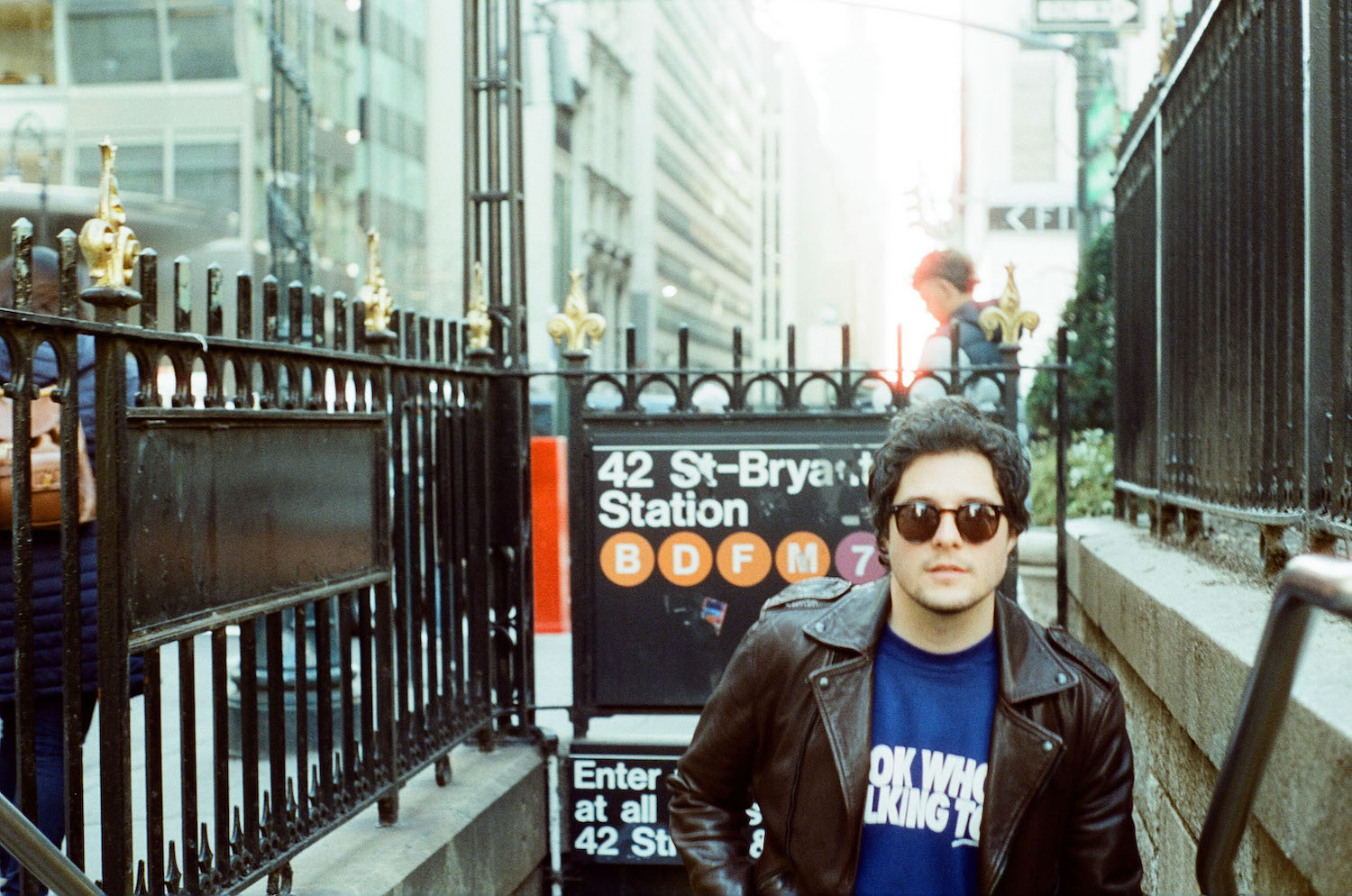
What have you taken away from creating this album, and now putting it out? Where do you think Loser on the Ropes will sit in the pantheon of Brian Dunne albums?
Brian Dunne: Well, I’m certain it’s my best record. And I feel like what I have learned is that if you’re going to assert yourself in a certain way, you should lean all the way in. When I was getting started, I was afraid of putting people off a little bit, so I would say things in vague ways. I’m not afraid anymore to say exactly what I want to say as an artist, and if people don’t like it, I want them to not like it really, really profoundly. I wanna lean all the way in.
And I think that if I could impart one thing to other artists, lean all the way into what it is that you wanna do and what you wanna say and who you wanna be, because you might put people off, but playing in the middle, you never feel like you’re understood. Because this record might freak people out a little bit, just in how brash it is with some of its lyrics, and so clear cut, but the people that really feel that way will take to it, I believe. And the people that don’t, that’s okay; they should go listen to something else.
I think that there’s no point in trying to be moderate or trying to play to the center. I don’t wanna be big and broad. I wanna be small and direct.
Who are you listening to these days that you would recommend to our readers?
Brian Dunne: I love the new Caroline Rose record. I think she’s wonderful. It’s called The Art of Forgetting. I love the new boygenius record, I think they’re great. Everybody thinks they’re great. What else have I been listening to a lot? When I was making the record, I was listening to a lot of Dire Straits. I’ve always loved Dire Straits, but I was really trying to make something that referenced Dire Straits.
— — — —

Connect to Brian Dunne on
Facebook, Twitter, Instagram
Discover new music on Atwood Magazine
© Alana Urcia
:: Stream Brian Dunne ::

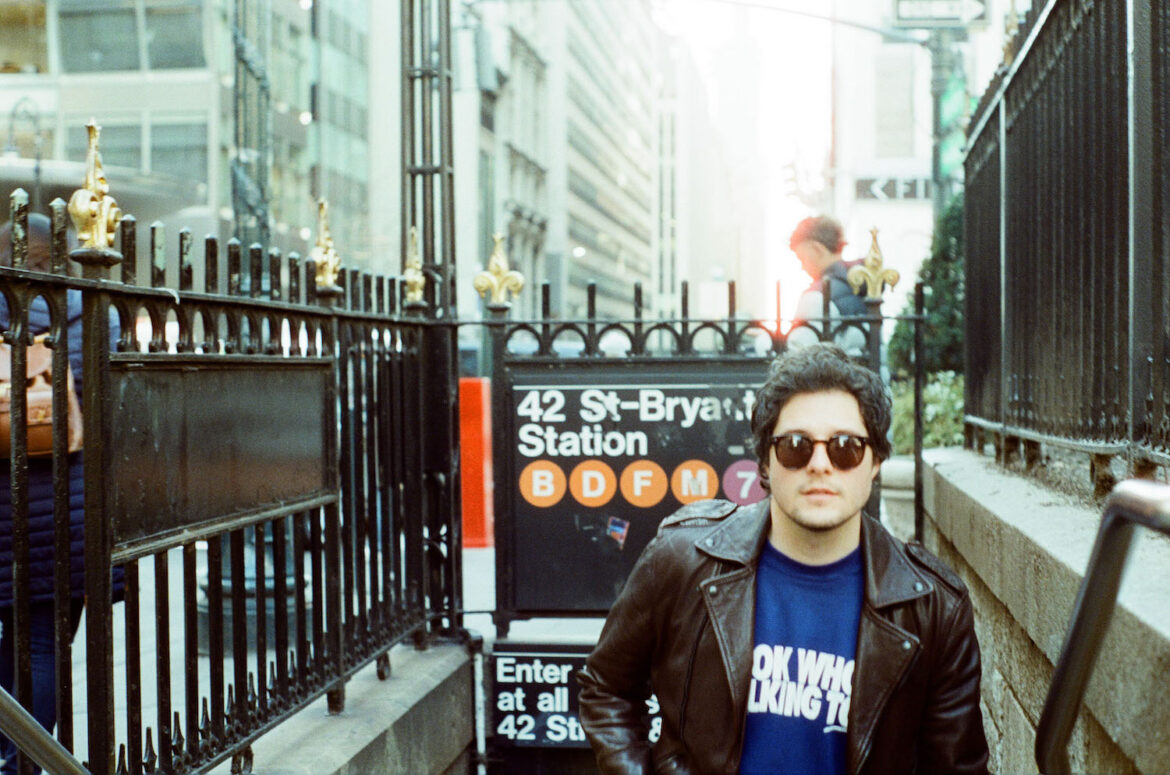
 © Alana Urcia
© Alana Urcia